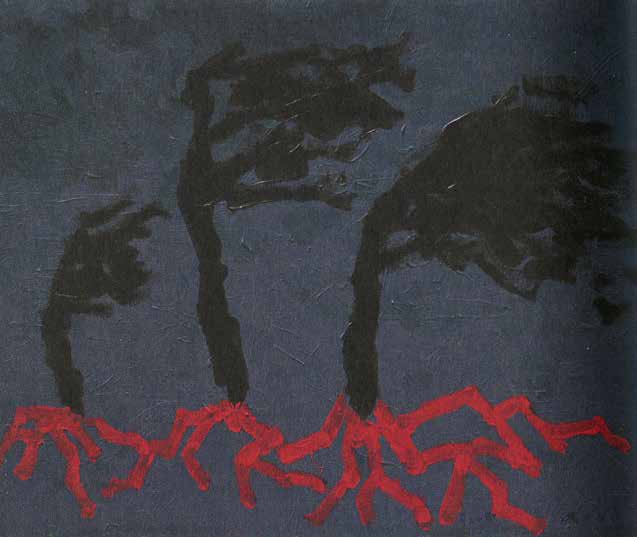A Flower & Struggle Part 2
Beauty is not solid but liquid. It is neither an institution nor power. It is freedom. It is flight. When beauty gets locked up in a celestial realm and doesn’t know the hunger, persecution, or alienation on the earth; and when it is congealed within the aesthetic circumstances of being a close neighbor to all sorts of injustice and violence; beauty loses its own meaning. Therefore, beauty should eventually produce a mode of practice. It is because beauty cannot defend itself on its own, but rather, it is named by circumstances from the east, west, north, and south of the world.
- Ko Un
아름다움이란 고체(固體)가 아니라 액체이다. 제도와 권력이 아니다. 자유이다. 비상(飛翔)이다. 아름다움이 천상의 아름다움에 갇혀서 지상의 굶주림이나 박해와 소외를 모를 때, 그것이 온갖 불의와 폭력의 이웃이라는 미적 상황으로 굳어져 있을 때 아름다움 자체의 의미를 잃어버릴 것이다. 그러므로 아름다움은 끝내 하나의 실천의 양식을 낳아야 할 것이다. 아름다움은 저 혼자 지켜지는 것이 아니라 세상의 동서남북으로부터 그때마다 명명(命名)되기 때문이다.
- 고은

Ko Un
The noted Korean poet Ko Un is an active social justice rights activist. He made his official literary debut with several poems published in the monthly journal Modern Literature in 1958. In 1960, Korean literary circles began showing interest in him with his first poetry collection, Other World Sensibility. As a poet and anti-government activist, his early poems dealt mainly with the futility and transience of life in an aesthetic way. Later, his poems captured the spirit of social justice and Korean history as Korea’s political situation started becoming more oppressive. In 1980, participating in the pro-democracy movement, Ko was accused of treason and sent to prison. While in prison, he planned a series of poems called Ten Thousand Lives. In 1986, he began contributing part of the poetry series Ten Thousand Lives to the quarterly Contemporary World Literature: Literary Journal for the Arts. In 2010, he published the fourth and last book in this series, completing 30 volumes of poetry over 25 years. A year later he published Where Did My Frontier Go? and today remains very active as an artist. He is the recipient of more than 10 Korean literary awards including the Korean Literature Prize (1974, 1987), the Manhae Literary Prize (1989), the Joongang Literary Prize (1991), the Daesan Literary Prize (1994) as well as major literary awards overseas such as the Cikada Prize (the Swedish literary prize for East Asian poets, 2006) and the Bjørnson Prize Order for Literature (2005).
고은
한국의 대표적인 참여시인이자 민족시인 고은은 1958년 『현대문학』에 시 「봄밤의 말씀」, 「눈길」, 「천은사운」 등을 추천받아 등단했다. 1960년 첫 시집 『피안감성』을 간행하며 문단의 주목을 받기 시작했다. 시인이며 재야 운동가로 활동한 그의 초기 시는 주로 허무와 무상을 탐미적으로 노래하였고 이후 어두운 시대상황과 맞물리면서 현실에 대한 치열한 참여의식과 역사의식을 표출하였다. 1980년대 초 민주화운동을 하다 내란 음모죄로 수감된 그는 1986년 감옥에서 구상한 연작 『만인보』를 에 연재하기 시작해 2010년 마지막 4권을 출간하면서 집필 25년 만에 총 30권 5600명의 이름을 올리며 4001명을 노래한 대하 인물 시집으로 완성했다. 2011년 『내 변방은 어디 갔나』 등의 시집을 출간하며 현재까지 역동적인 창작 에너지를 보여주고 있다. 한국문학작가상(1974, 1987), 만해문학상(1989), 중앙문화대상(1991), 대산문학상(1994) 등 10여 개의 국내 문학상을 비롯하여 스웨덴 시카다상(2006), 노르웨이 비외르손 훈장(2005) 등 주요 문학상을 두루 수상했다.